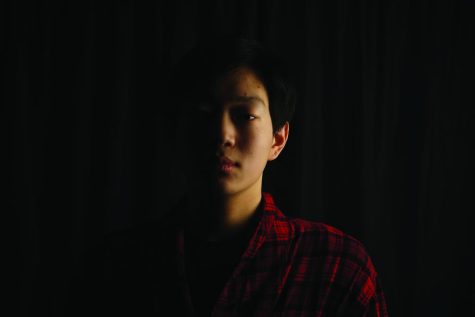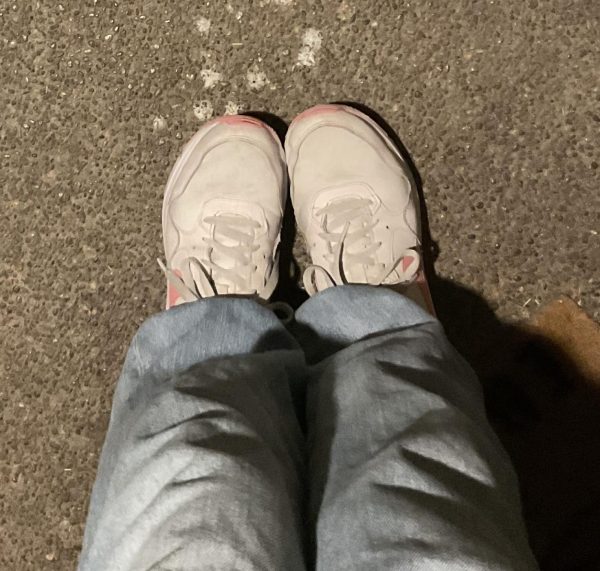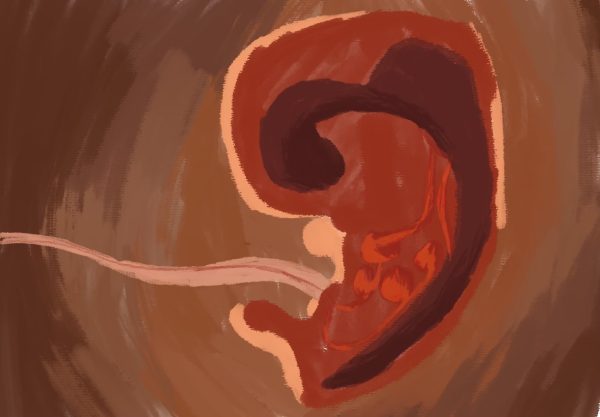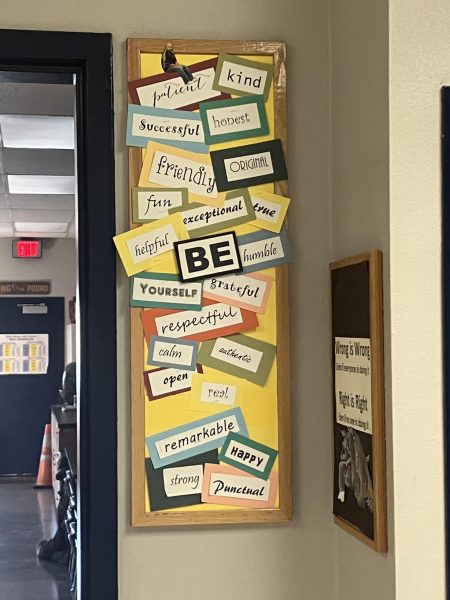When Words Collide
How bilingualism shapes our experiences with the world
Are you more closed off in Chinese, funnier in Spanish, or more outgoing in English? This is the reality of bilingual and multilingual people. Personality is what makes us unique and different from everyone else, but have you ever considered that bilingual or multilingual people could have different experiences in each language?
I, as a bilingual person who speaks German and Spanish, have experienced this — knowing two languages perfectly, but at the same time feeling that you don’t not know any perfectly. Growing up in one culture and speaking that language, but then also living in a completely different culture and speaking a different language, shaped me and my personality.
Children whose parents speak another language normally learn their parents’ language first and then the language of the country they are living in. You would think that those children’s mother language is their parents’, but that isn’t always the case, especially in America.
“I would like to say Russian [is my mother language], but at this point, I feel like English is easier for me,” sophomore Stacy Yakavenka, a Russian speaker, who has spoken Russian for a longer time than English, said.
On the other hand, freshman Jerry Wang, a Chinese speaker, said that “Chinese [is his mother language] because it is cool,” but that it depends on the occasion.
VANISHING LANGUAGE
More and more children aren’t learning their relatives’ languages because no one teaches them. Research from the UCLA Asia Pacific Center shows that it takes three generations to lose a family’s native language. It is not only sad that the children don’t know the language, but tragic knowing they are losing essential parts of their relatives’ culture.
Preserving a language is really difficult, especially when you live in a country where there is a lot of pressure to shift to the country’s culture, also known as assimilating. This makes a lot of families not only lose their language but also their culture. A lot of children whose parents immigrated don’t even learn their relative’s language.
But even the children that do speak their parents’ language often don’t feel that connected to the language, and feel more accepted and understood in English and the American culture.
This makes a lot of bilinguals not feel comfortable talking in their mother language. Speaking in the language of the country where you live is easier most of the time, and they may feel more secure since everyone else also speaks English.
Bilinguals are under the pressure of the community to learn the language of the country they live in and to drop their own culture to be as American as everyone else.
This pressure of fitting in creates the issue that parents don’t bother to teach their children how to read and/or write in their parents’ language.
“I tried to learn [to read and write in Punjabi] … and then I gave up,” freshman Ritish Ratanpal, a Punjabi speaker, said; since Punjabi has another alphabet and he never learned it as a child. Ratanpal regrets that he never learned how to read and write in Punjabi.
DIFFERENT PERSPECTIVES
Despite this fact, the experience of bilinguals is different for everyone.
“The feeling [I feel when I am] talking in Punjabi is just different,” Ratanpal said. He would always choose to speak Punjabi with people if he had the choice to do so.
Others, like junior Alex Cortes, a Spanish speaker, prefer speaking English because, as he said, “We are in America.”
I prefer speaking German; it is the language where I feel I can express myself the best and where I feel most comfortable with knowing the most vocabulary.
Being secure and feeling comfortable in situations also sometimes make up someone’s personality. For bilinguals, it can slightly change depending on which language they are speaking.
“I feel more comfortable speaking Spanish because some people say [that] my English isn’t very good,”Cortes said.
This occurrence happens a lot where kids don’t feel as comfortable speaking the language where they live because other people say they have an accent. It makes some children more shy and introverted in English than in their native language.
SPEAKING IN A SECRET LANGUAGE
The feeling of speaking your mother tongue can give you more security; it is a kind of confidence that you don’t receive in any other language. You can be confident speaking other languages, but feeling comfortable speaking your “mother” language hits different. Speaking your parents’ language is like speaking a “secret language,” Ratanpal said, since no one else understands what you are saying.
I have experienced that feeling, too. When I am with my brother in Spain, we speak in German, so no one can understand us, but when we are in Germany, we speak in Spanish. My mother language is German and it is my preferred language. It is easier to express my feelings and emotions. I feel like in German there are more words to describe how I feel, and sometimes in Spanish or English, there is a lack of words. On some occasions I want to say something and there just isn’t the right word to describe what I want to say; there are synonyms, but not the right words.
“One language doesn’t convey feelings [as] the other [one], so I like change between them,” Wang said.
It is really common to swap words while you are speaking, especially when the person you are talking to knows both languages. You may not find the perfect word in one language, so you just say it in the other language because it fits better with what you are trying to say.
One of the downsides of being bilingual is forgetting words. What happens really often is that you not only forget the words in one language, you forget them in all of the languages you know. Your brain goes completely blank. Then you have to describe the item; however, how are we supposed to describe a bell pepper or a blanket. They are common words that just aren’t in your brain. Wang came back from China and he didn’t remember the word for some animals and forgot how to spell things in English.
“I usually just pause,” Yakavenka said when they completely forget the word in a language. Yakavenka tries to describe the word and insert descriptive words to explain it to someone else.
A lot of people assume that bilingual people just translate the words in their head. Indeed, bilinguals do that with specific words, but most of the time we don’t.
“I think it is just there,” Cortes said.
Bilinguals have two different languages in their head that they’re proficient in, automatically aware of what a word is without feeling the need to manually translate it in their head.
Being bilingual has a lot of positive sides. Knowing more than one language, being able to communicate with people from multiple countries, growing up in multiple cultures, among other benefits. But bilinguals are also living in-between two worlds, being in a conflict to which country and ethnicity one should belong. They don’t feel one hundred percent accepted in either culture and having a conflict with oneself about which language they would prefer to speak in.




Your donation will support the student journalists of West Albany High School. Your contribution will allow us to purchase equipment and cover our annual website hosting costs.









